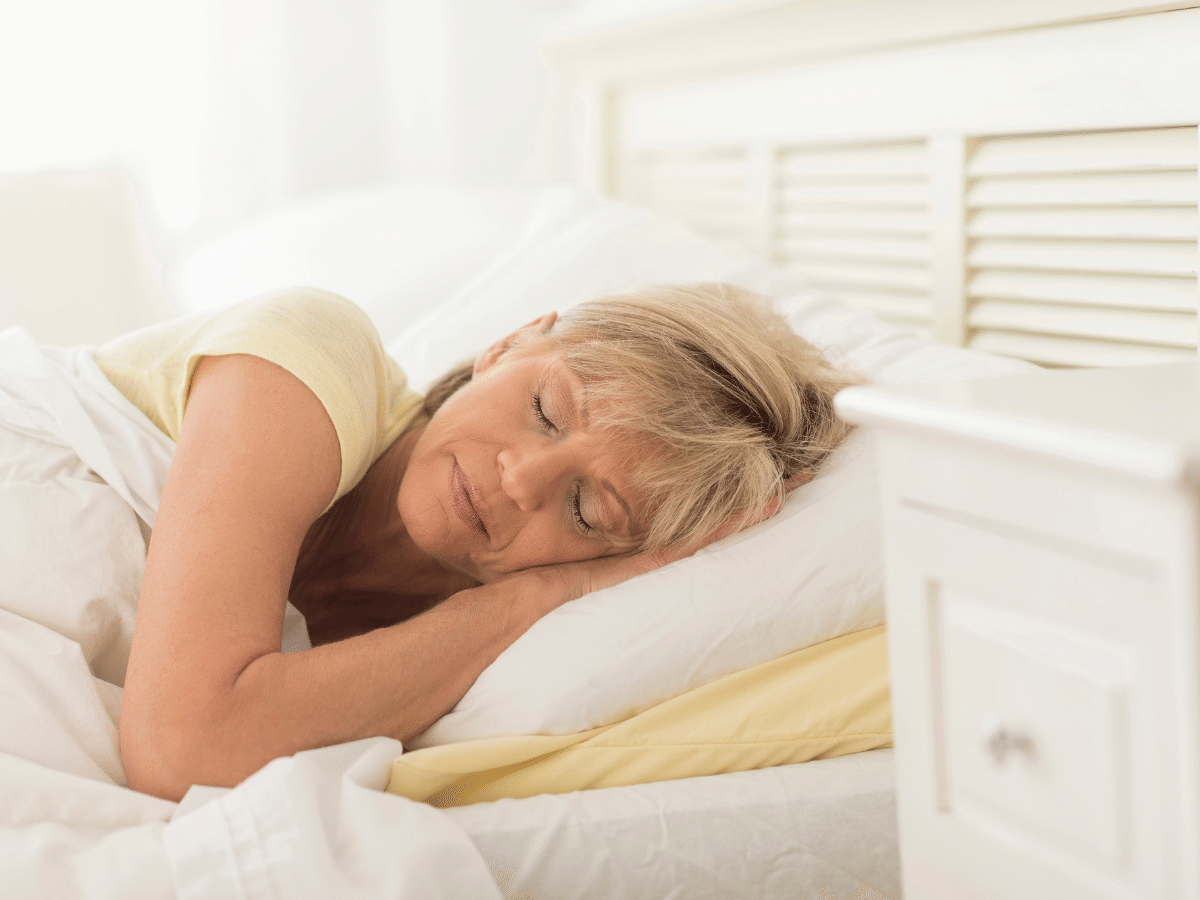Throughout my 20s, sleep was never a friend- more like a frenemy. I started off my career much like many of my classmates and colleagues- bright eyed and bushy tailed, working my way through a big corporate pharmacy chain. Shift-work and the mental load of responsibility began shortly after graduation and led to a chronic period of sleepless nights. Getting better sleep seemed impossible. Needless to say, when a patient comes into our pharmacy concerned with issues of insomnia, I can relate to the stigma and unfamiliarity of seeking medical advice.
Menopause- the particular set of symptoms you can experience is as unique as each individual woman is different. You can certainly start addressing these symptoms via powerful non-drug means, including lifestyle changes that involve dietary modifications, as well as trying natural supplements after consultation with your physician and pharmacist. In addition to hot flashes, vaginal dryness, weight gain, loss of hair, mood changes, loss of sexual desire, yet another common and bothersome symptom is insomnia. In your quest, remember that it is crucial to rule out confounding conditions such as stress, anxiety, depression, and/or mood disorders before trying any insomnia treatment.
Non-caffeinated teas are not only delicious but could be the simple answer to mild insomnia. Camomile, lavender, and passionflower are just a few examples that you could try on their own or together as a bedtime routine to get you in the mood. If you’re anything like me and simply cannot find the time to prepare warm beverages (with the exception of putting a coffee pod into the latest up and coming espresso machine that you try to justify purchasing by using it as often as possible), you could find these tea alternatives in concentrated, commercially available herbal extracts.
A special type of magnesium called “magnesium bisglycinate” is often a safe first-line therapy option for relaxing the mind and body. It is generally taken in the evening as a capsule, powder or drink that is well-absorbed, well-tolerated, and could take effect in as little as 1-2 days. Women that have trouble falling asleep find this option quite useful. It has also been shown to be effective for leg cramps.
An amino-acid called “L-Theanine” is also a gentle option. It can be found on its own or combined with magnesium bisglycinate. Taken at bedtime, many women report that it relaxes them enough to help fall asleep, as well as keep them sleeping for longer.
A herb called “rhodiola” can be beneficial for those of us who need that gentle push for regulating our stress levels so that we can sleep at night. It is considered an “adaptogen”, and as such, could give you more energy in the daytime, as well as mental sharpness and endurance.
It is imperative to be mindful of a few general principles when trying natural supplements. Firstly, a herbal supplement always contains a chemical, meaning that it always carries a potential risk of side-effects and interactions. If you want something with no side-effects, consult an integrative physician or pharmacist and seek out a homeopathic option. Secondly, it is imperative to remember that insomnia is not a condition or a disease, but a SYMPTOM. Perhaps many will think that the semantics are not relevant to get to the root of the insomnia, but I do advise that since insomnia is a symptom, it is important to address the underlying cause. Thirdly, remember that there is no magic pill. If it sounds too good to be true, it likely is. Be realistic with your expectations, be patient, try several options in sequence (together or by themselves, be they prescription, herbal, or homeopathic), and hopefully that much desired beauty sleep will come! Let’s hope we can start using those sleeping face masks while we’re actually SLEEPING.
Until next time, my friends!
Christianne Ng
RPh, B.Sc.Pharm
Regency Pharmasave 1022
1-1530 W 7th Ave
Vancouver, BC




